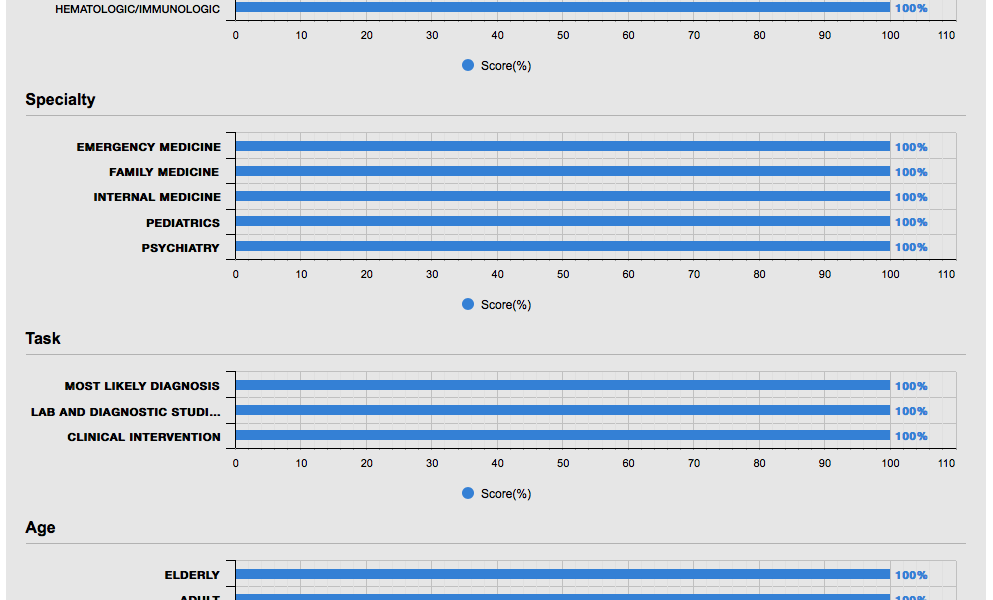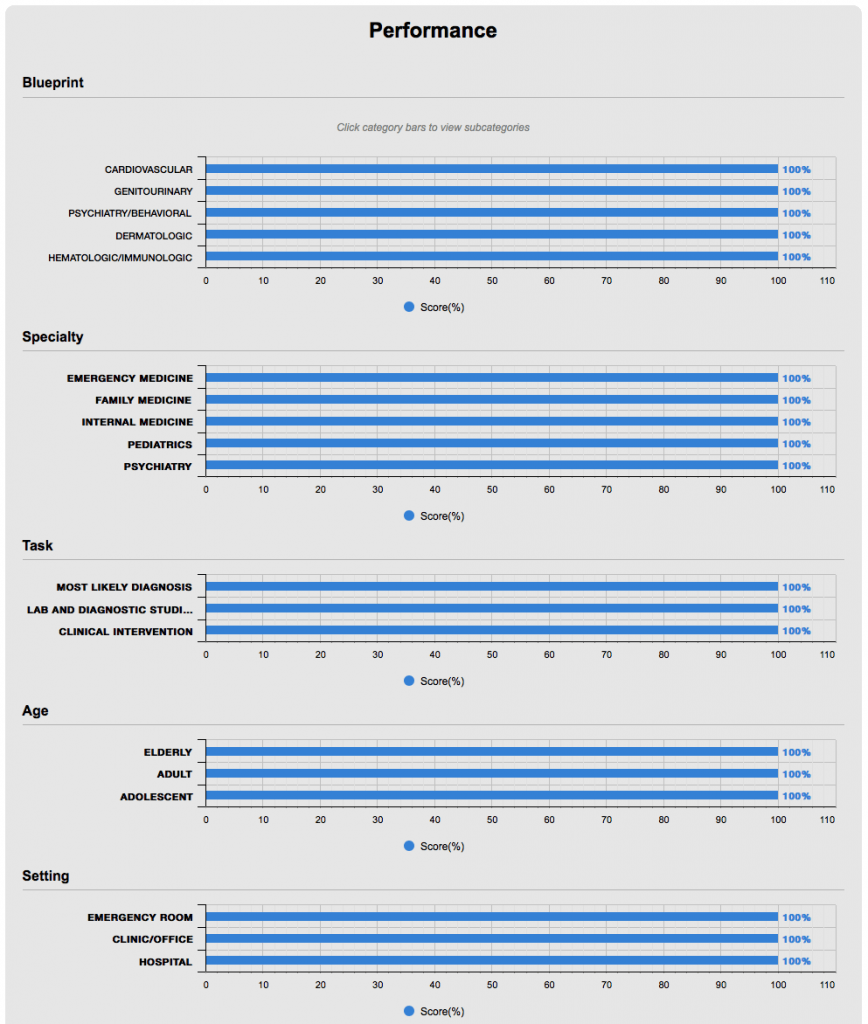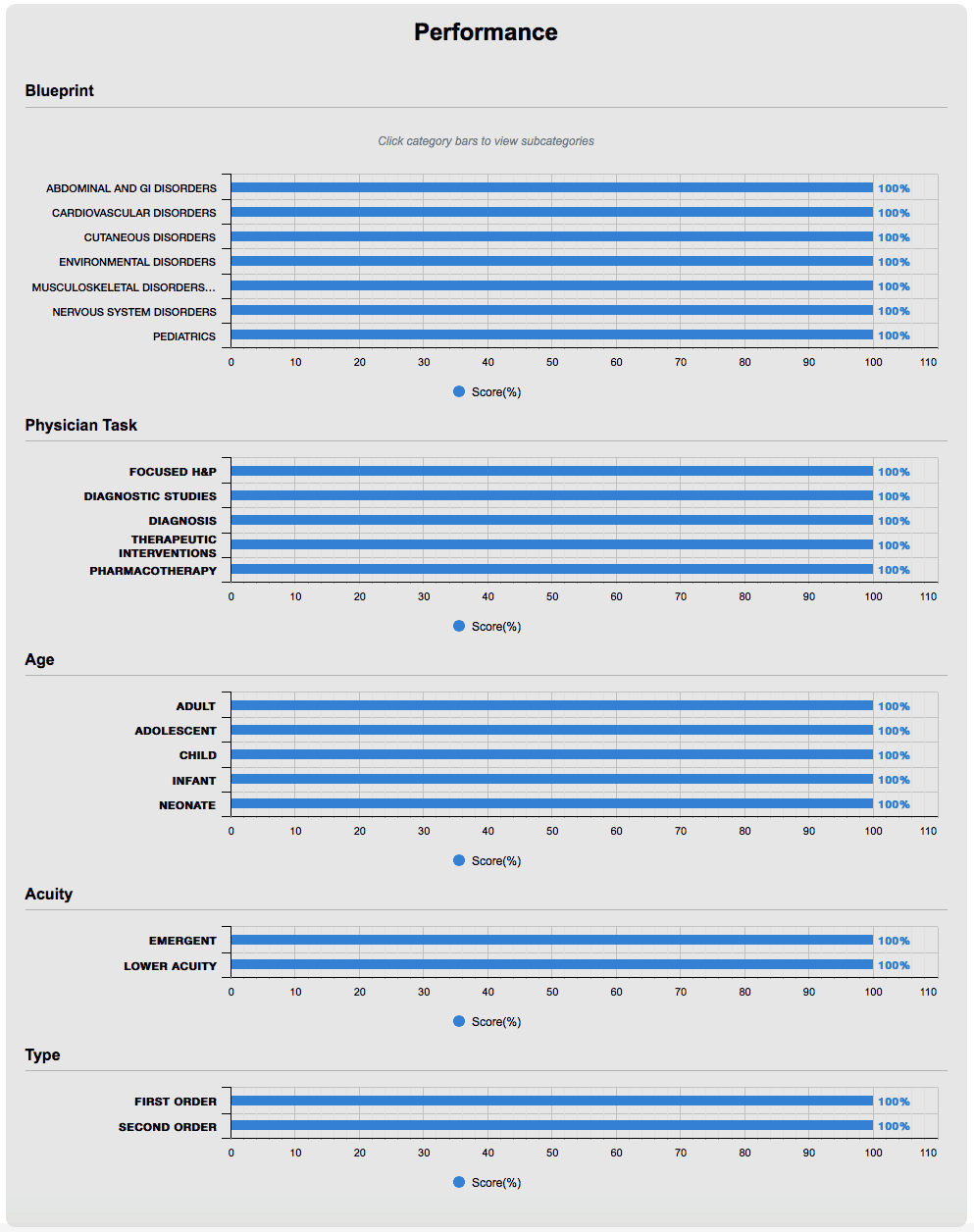New Improved Performance and Feedback Page to Gain Better Insights

Rosh Review, LLC is not sponsored or endorsed by, or affiliated with, the Physician Assistant Education Association, National Commission on Certification of Physician Assistants, or the American Board of Emergency Medicine . All trademarks are the property of their respective owners.
Last night we released an expanded performance analysis page. Previously, after you submitted your exam, the feedback focused solely on the exam blueprint of your specialty. For PAs, this included the NCCPA content blueprint for the PANCE. For EM physicians, this included the ABEM EM Model. With the improved performance and feedback page, you now gain deeper insights into your strengths and weaknesses.
For PAs using Rosh Review’s Mock PA Clinical Knowledge Assessment Test, Rotation Exams, or PANCE and PANRE Qbanks, the performance page includes the following:
- NCCPA content blueprint (various core content categories)
- Specialty (Emergency Medicine, Family Medicine, Internal Medicine, Pediatrics, Psychiatry, OB/GYN)
- Task (Most likely diagnosis, Lab and diagnostic studies, Clinical intervention, History and physical exam, Health maintenance, Basic science concepts)
- Age (Elderly, Adult, Adolescent, Child, Infant, Neonate)
- Setting (Prehospital, Emergency room, Clinic/Office, Hospital)
- Acuity (Acute, Subacute, Chronic)
Here’s a snippet:

For Emergency Physicians and medical students studying for the EM Shelf exam, In-Training exam, Initial Certification exam, or Recertification (ConCert) exam, the performance page includes the following:
- ABEM Model blueprint (various core content categories)
- Task (Defined by ABEM: Prehospital care, Emergency stabilization, Focused H&P, Modifying factors, Legal issues, Professional issues, Diagnostic studies, Diagnosis, Therapeutic intervention, Pharmacotherapy, Observation and reassessment, Consultation, Transitions of care, Prevention and education, Documentation, Multiple patient visit, Team management, Mass casualty and disaster management, Patient-centered communication skills, Prognosis)
- Age (Elderly, Adult, Adolescent, Child, Infant, Neonate)
- Acuity (Critical, Emergent, Lower acuity)
- Question type (First order, Second order)
Here’s a snippet:

In the coming weeks, we’ll be adding similar performance insights to the Family Medicine, Nurse Practitioner, Pediatrics, Pediatric Emergency Medicine, and SPEX Qbanks.





Comments (0)